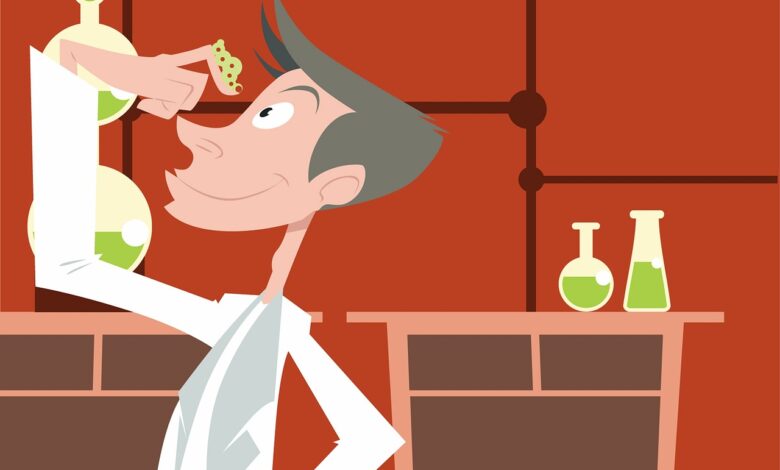Scientist Who Was Offline ‘Living His Best Life’ Stunned by Nobel Prize Win

Scientist Who Was Offline ‘Living His Best Life’ Stunned by Nobel Prize Win
Estimated reading time: 5-6 minutes
- Disconnecting from digital noise can lead to unexpected personal and professional breakthroughs.
- True intellectual progress, especially in scientific discovery, often requires periods of deep, undisturbed focus away from digital distractions.
- Purposeful disengagement, such as digital detoxes, significantly enhances creativity, reduces stress, and improves overall well-being.
- Actionable steps like scheduling regular digital detoxes, cultivating presence-demanding hobbies, and designating ‘deep work’ blocks can help embrace the “unplugged advantage.”
- Fred Ramsdell’s Nobel Prize win while completely offline powerfully illustrates the profound rewards of being present and detached from constant connectivity.
- The Wilderness Call: A Deeper Dive into Disconnection
- Unpacking the Breakthrough: The Science Behind the Stunner
- The Unplugged Advantage: How Disconnecting Can Elevate Your Life and Work
- Conclusion: The Ultimate Reward of Being Present
- Ready to Experience Your Own Unplugged Breakthrough?
- Frequently Asked Questions (FAQ)
In an age dominated by constant notifications, endless scrolling, and the relentless pull of digital connectivity, the idea of truly disconnecting can feel like a radical act. For many, a vacation means a chance to catch up on emails or post stunning vistas to social media. But imagine taking a complete break, embracing the quiet solitude of the wilderness, only to return to the most astonishing news of your professional life: a Nobel Prize.
This isn’t a plot from a quirky film; it’s the real-life experience of Fred Ramsdell, a scientist whose story serves as a profound reminder of the unexpected rewards that can emerge when we dare to step away from the digital noise. His experience offers a fascinating paradox: sometimes, to achieve the highest form of recognition, you need to be utterly unreachable.
The Wilderness Call: A Deeper Dive into Disconnection
The scene itself paints a picture of serene detachment: remote, rugged, and far removed from the bustling laboratories and academic conference halls. Fred Ramsdell was on vacation in the Montana wilderness when he and two colleagues received the honor for their breakthroughs in immunology. No email alerts, no breaking news notifications, no congratulatory calls interrupting his communion with nature. He was, by all accounts, living his best, unplugged life.
This level of true disconnection is increasingly rare. Our smartphones have become extensions of ourselves, tethering us to work, social circles, and the endless stream of information. The “fear of missing out” (FOMO) keeps many glued to their screens, even when they’re supposed to be relaxing. Ramsdell’s situation highlights the stark contrast between our always-on culture and the profound benefits of genuine retreat.
Stepping away from the digital realm offers more than just a break from screen glare. It’s an opportunity for cognitive rest, a chance for the mind to wander, to process thoughts without external interruptions. Studies consistently show that periods of downtime, especially in nature, can reduce stress, enhance creativity, and improve problem-solving abilities. For a scientist whose work demands deep thought and innovative leaps, such a break could be invaluable, even if its ultimate reward arrived after the fact.
His story prompts us to consider: how much clarity and focus do we sacrifice by being perpetually online? Could our best ideas, our most significant breakthroughs, be waiting for us in the quiet spaces that digital noise currently occupies?
Unpacking the Breakthrough: The Science Behind the Stunner
While the focus of this narrative is on the delightful surprise of the Nobel announcement, it’s crucial to acknowledge the immense, painstaking work that underpinned the recognition. Ramsdell and his colleagues were honored for their seminal contributions to immunology—a field that explores the intricate defenses of the human body. These aren’t discoveries made overnight; they are the culmination of years, often decades, of rigorous research, experimentation, and critical thinking.
Scientific advancement, particularly in foundational fields like immunology, requires sustained periods of intense focus. It involves delving deep into complex biological mechanisms, deciphering cellular pathways, and understanding the subtle interactions that govern health and disease. Such “deep work,” as it’s often called, thrives in environments free from distraction. An email notification or a trending news alert, while seemingly trivial, can derail a train of thought that has been painstakingly built over hours.
The irony is profound: the very recognition that celebrates this profound intellectual labor arrived when Ramsdell was completely detached from the world of academia and research. It underscores that true intellectual progress often demands a commitment that transcends the immediate demands of digital communication. The award wasn’t for his ability to respond to emails quickly, but for profound insights born from dedicated, undisturbed inquiry.
The Unplugged Advantage: How Disconnecting Can Elevate Your Life and Work
Fred Ramsdell’s experience is more than just an interesting anecdote; it’s a powerful case study for the strategic value of purposeful disconnection in our professional and personal lives. In a world that constantly demands our attention, choosing to disengage isn’t about avoidance; it’s about empowerment. It’s about reclaiming your mental space, fostering original thought, and protecting your well-being.
The It’s a principle applicable to anyone seeking to enhance their productivity, creativity, and overall life satisfaction. When we intentionally step away from the digital stream, we open ourselves up to new perspectives, allow our brains to consolidate information, and recharge the mental batteries that power our daily lives. This can lead to breakthroughs not just in immunology, but in art, business, personal relationships, and self-discovery.
By mimicking, even in small ways, Ramsdell’s commitment to a true break, we can cultivate an environment where our own innovative ideas can flourish, and where we can truly “live our best lives,” both online and, crucially, offline.
Actionable Steps to Embrace the Power of Disconnection:
- Schedule Regular Digital Detoxes: Make it a habit to completely unplug for defined periods. This could be an hour each evening, a tech-free weekend once a month, or a dedicated “offline day” during your vacation. Communicate these boundaries to colleagues and family so they know when you’ll be unreachable, setting clear expectations.
- Cultivate Hobbies That Require Presence: Engage in activities that physically or mentally demand your full attention and cannot be done online. Think hiking, painting, playing a musical instrument, gardening, cooking a complex meal, or practicing mindfulness. These activities ground you in the present moment and offer a genuine escape from screens.
- Designate ‘Deep Work’ Blocks (Offline if Possible): Set aside specific times in your day or week for focused, uninterrupted work on high-priority tasks. During these blocks, turn off notifications, close unnecessary tabs, and consider putting your phone in another room. For creative tasks or strategic planning, try working in an environment where internet access is limited or intentionally disabled.
A Real-World Example of Unplugging for Clarity:
Sarah, a marketing strategist, felt perpetually overwhelmed and creatively blocked. Her best ideas seemed to elude her. Frustrated, she decided to take a spontaneous, entirely unplugged camping trip to a national park. No phone, no laptop, just a journal and her thoughts. Away from the constant barrage of client emails and social media updates, she found her mind clearing. During long hikes, she brainstormed a revolutionary new campaign concept for her biggest client, something she couldn’t achieve while tethered to her desk. The physical and mental space allowed her to connect disparate ideas and return to work revitalized and with a clear, actionable plan.
Conclusion: The Ultimate Reward of Being Present
Fred Ramsdell’s incredible story is a powerful testament to the value of stepping away. It challenges our default assumption that constant connectivity is the only path to success or even awareness. Sometimes, the greatest victories, the most profound recognitions, arrive precisely when we are least expecting them, in moments of genuine detachment and presence.
His experience serves as a vibrant metaphor: by unplugging from the digital world, we don’t necessarily miss out; we might just be creating the space for something far greater to enter our lives. Whether it’s a Nobel Prize or simply a renewed sense of peace and purpose, the rewards of truly living your best life—offline—are immeasurable.
Ready to Experience Your Own Unplugged Breakthrough?
What’s your favorite way to disconnect and recharge? Share your digital detox strategies in the comments below, or tell us about a time when stepping away led to an unexpected positive outcome!
Frequently Asked Questions (FAQ)
A: Fred Ramsdell is a scientist who, along with two colleagues, won a Nobel Prize for breakthroughs in immunology. Remarkably, he received this news while on a vacation completely disconnected from the digital world in the Montana wilderness, highlighting the unexpected rewards of detaching from constant connectivity.
A: The “unplugged advantage” refers to the strategic value and benefits derived from purposeful disconnection from digital devices and constant online demands. These benefits include enhanced productivity, increased creativity, reduced stress, improved problem-solving abilities, and overall greater life satisfaction by allowing the mind to rest, wander, and consolidate information.
A: You can start by scheduling regular digital detoxes (e.g., an hour each evening, a tech-free weekend), cultivating hobbies that require your full presence (like hiking or painting), and designating ‘deep work’ blocks where you intentionally turn off notifications and limit internet access. Communicating these boundaries to others helps manage expectations.
A: Fred Ramsdell and his colleagues were honored for their seminal contributions to immunology, a field dedicated to understanding the intricate defense mechanisms of the human body. Their work represents years of rigorous research and critical thinking into complex biological mechanisms and cellular pathways.





